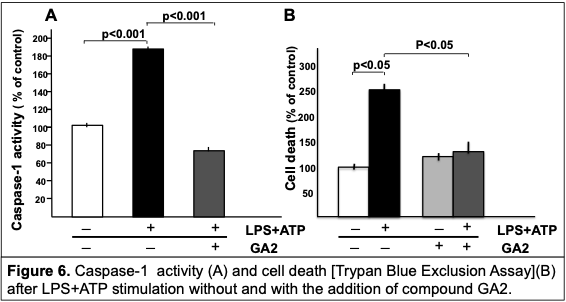Pharmacotherapy
Novel Inhibitors of Inflammasome
A new class of anti-inflammatory drugs and their potential to limit injury
Acute myocardial infarction (AMI) is one of the leading causes of adverse cardiac remodeling, heart failure, and death worldwide. Cryopyrin has been shown to play a major role in the formation of the inflammasome in the heart during AMI and its potential inhibitors could be used to prevent adverse cardiac remodeling after AMI. There is an urgent need for new therapeutic strategies specifically aimed at modulating inflammation during AMI. The current approach of reperfusion and inhibition of neurohormonal activation has successfully reduced morbidity and mortality of AMI, but is still associated with unacceptably high incidence of heart failure and death that may be related to the excessive inflammatory activity. Glyburide is an anti-diabetic drug shown to also inhibit cryopyrin, but the need for high doses causes severe hypoglycemia and has been shown to be cardiotoxic.
The technology
This invention presents a new class of anti-inflammatory drugs and their potential to limit cardiac injury due to a sterile inflammation during AMI and prevent heart failure through inhibition of the cryopyrin inflammasome. Dr. Abbate and colleagues from Virginia Commonwealth University have designed and investigated several glyburide analogs that are chemically stable, show lower toxicity, and specifically inhibit cryopyrin inflammasome without affecting glucose metabolism. The figure below demonstrates one of the compounds (GA2) inhibiting activity. Such inflammasome inhibitors may prove useful not only for treatment of AMI, but also in other inflammasome-mediated diseases such as diabetes, gout, and auto-inflammatory diseases.

